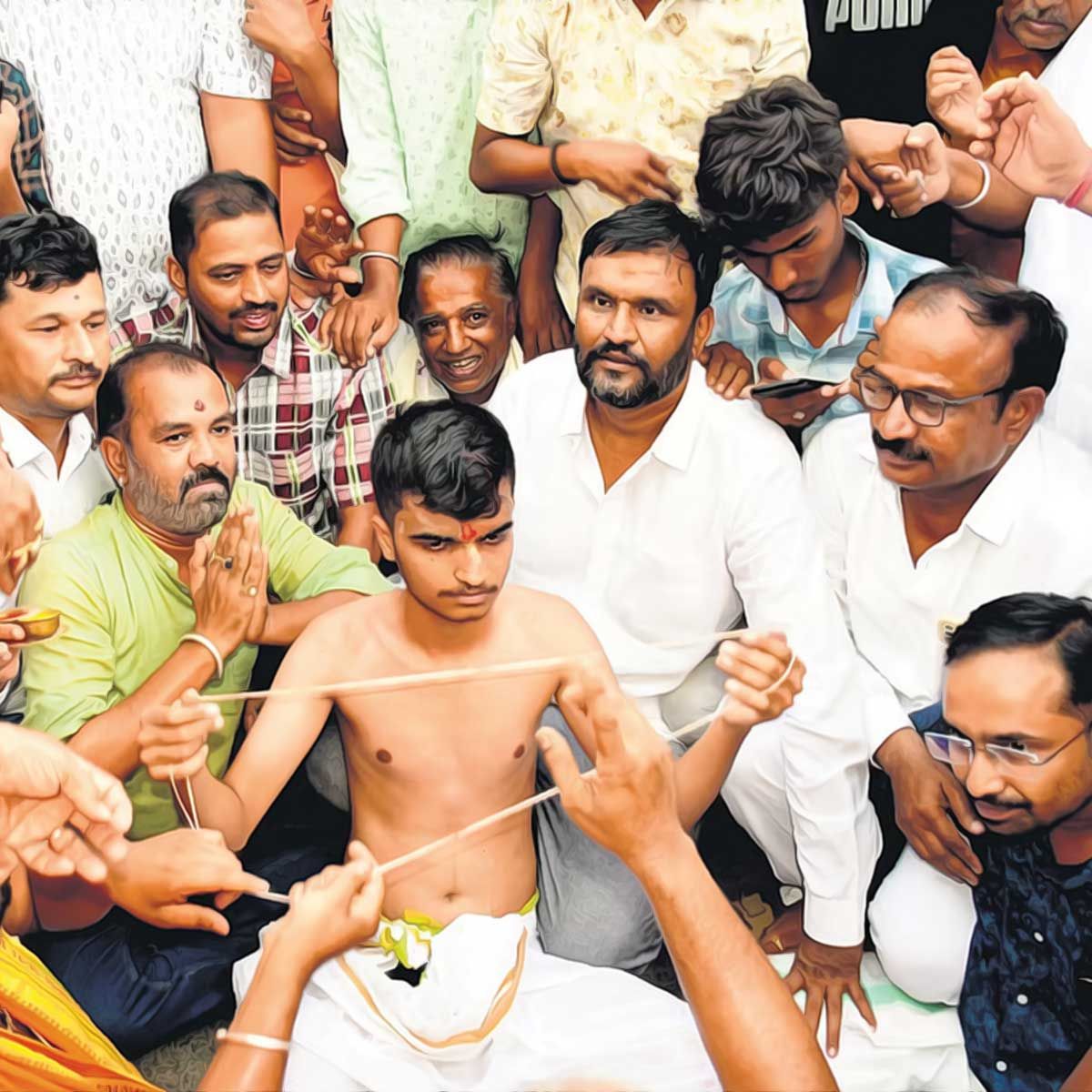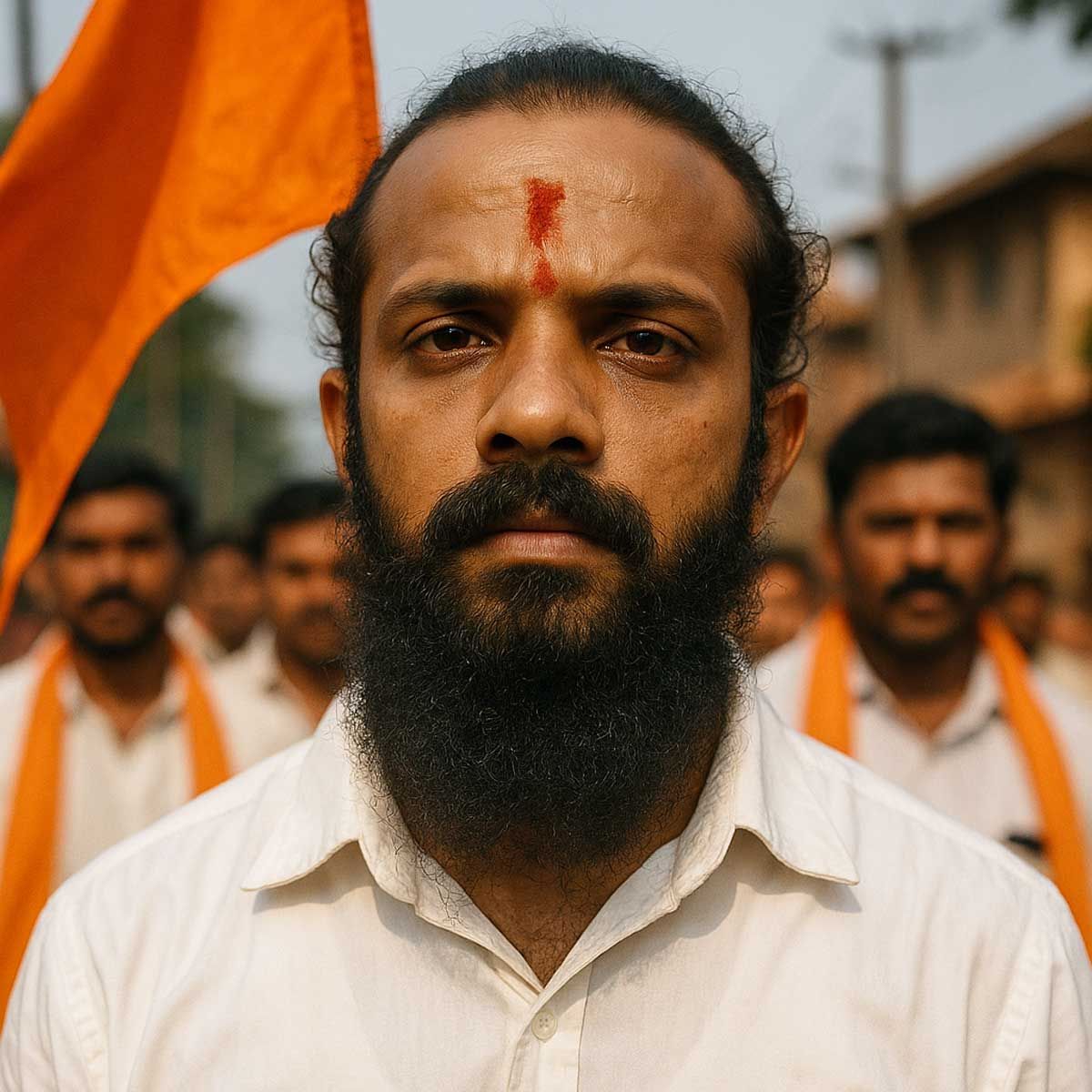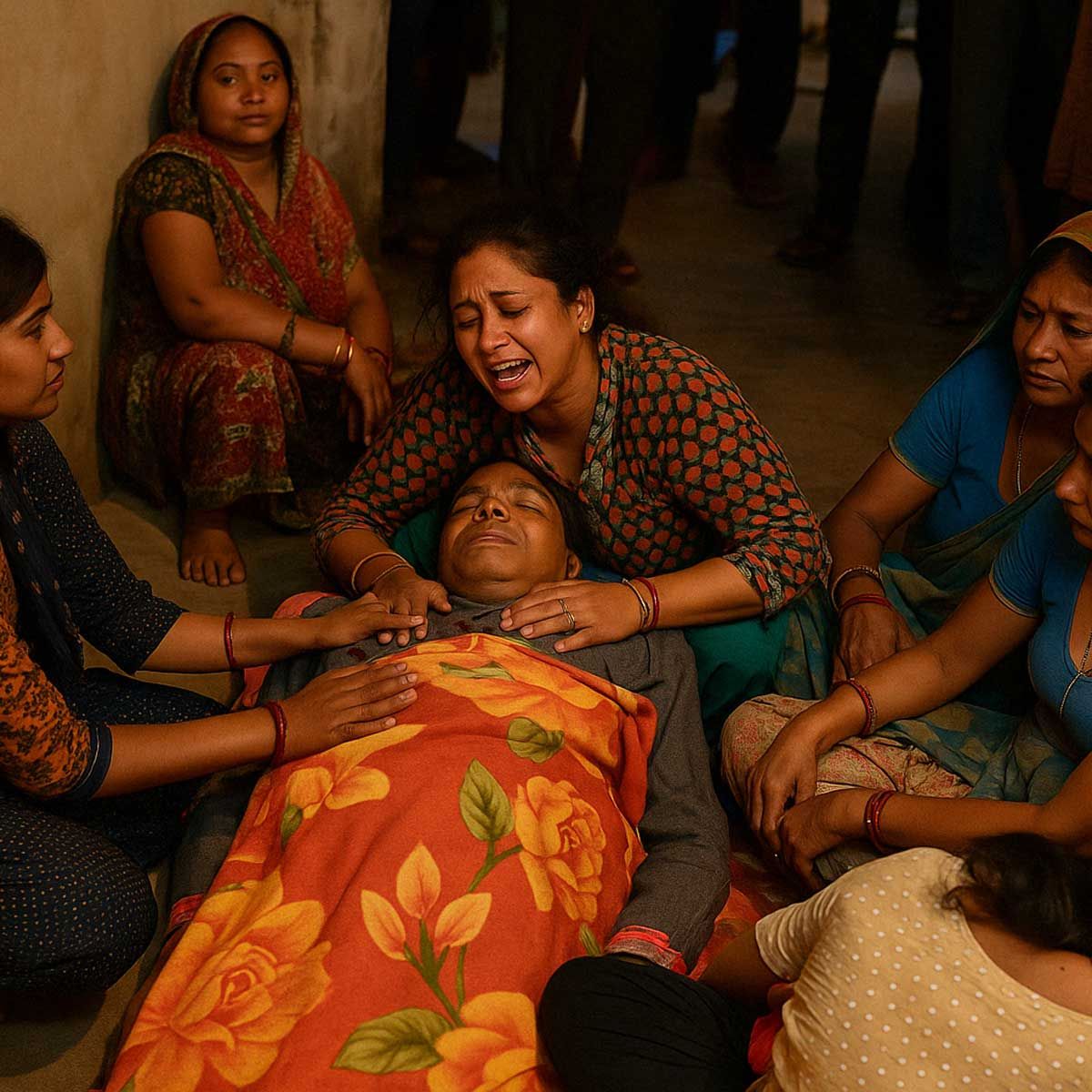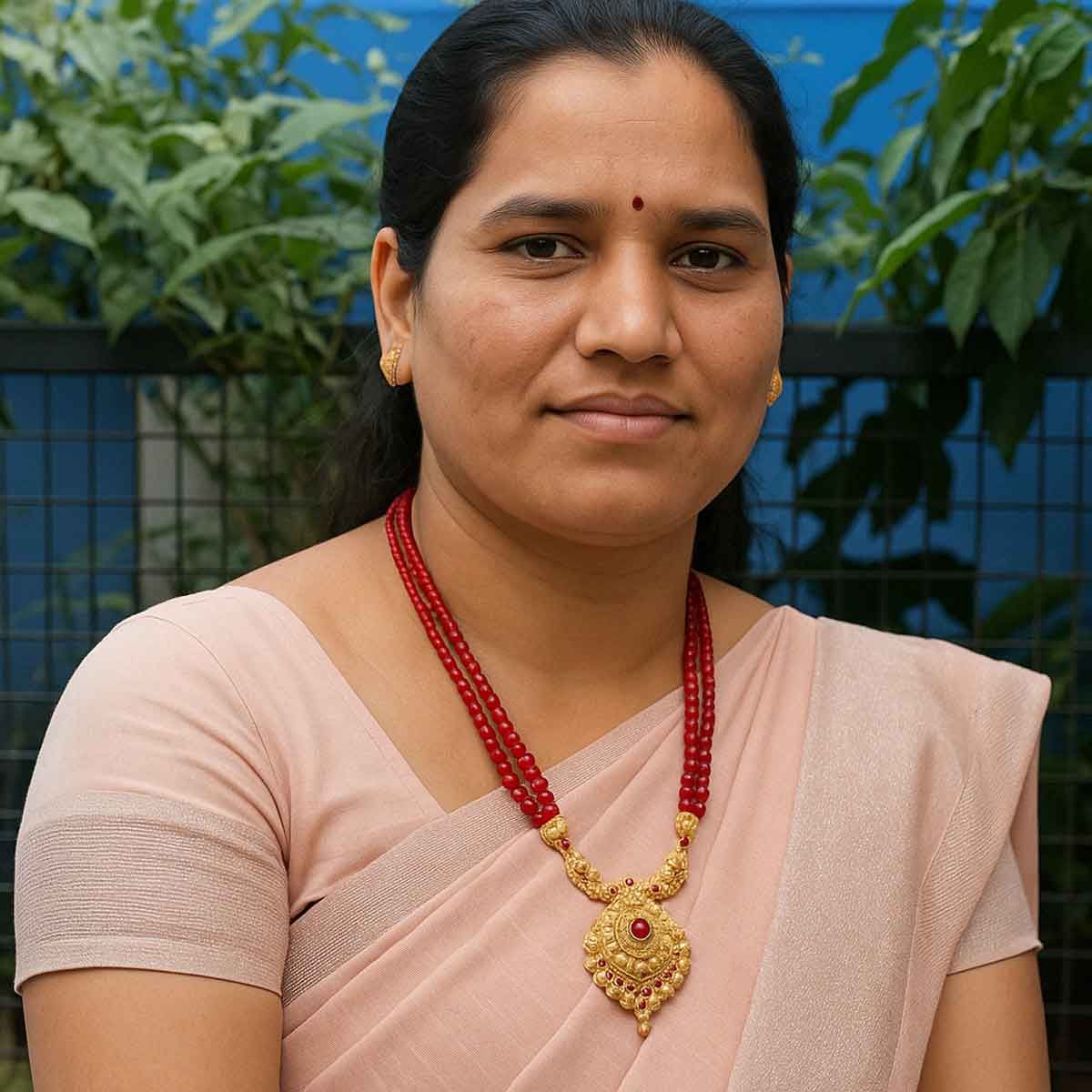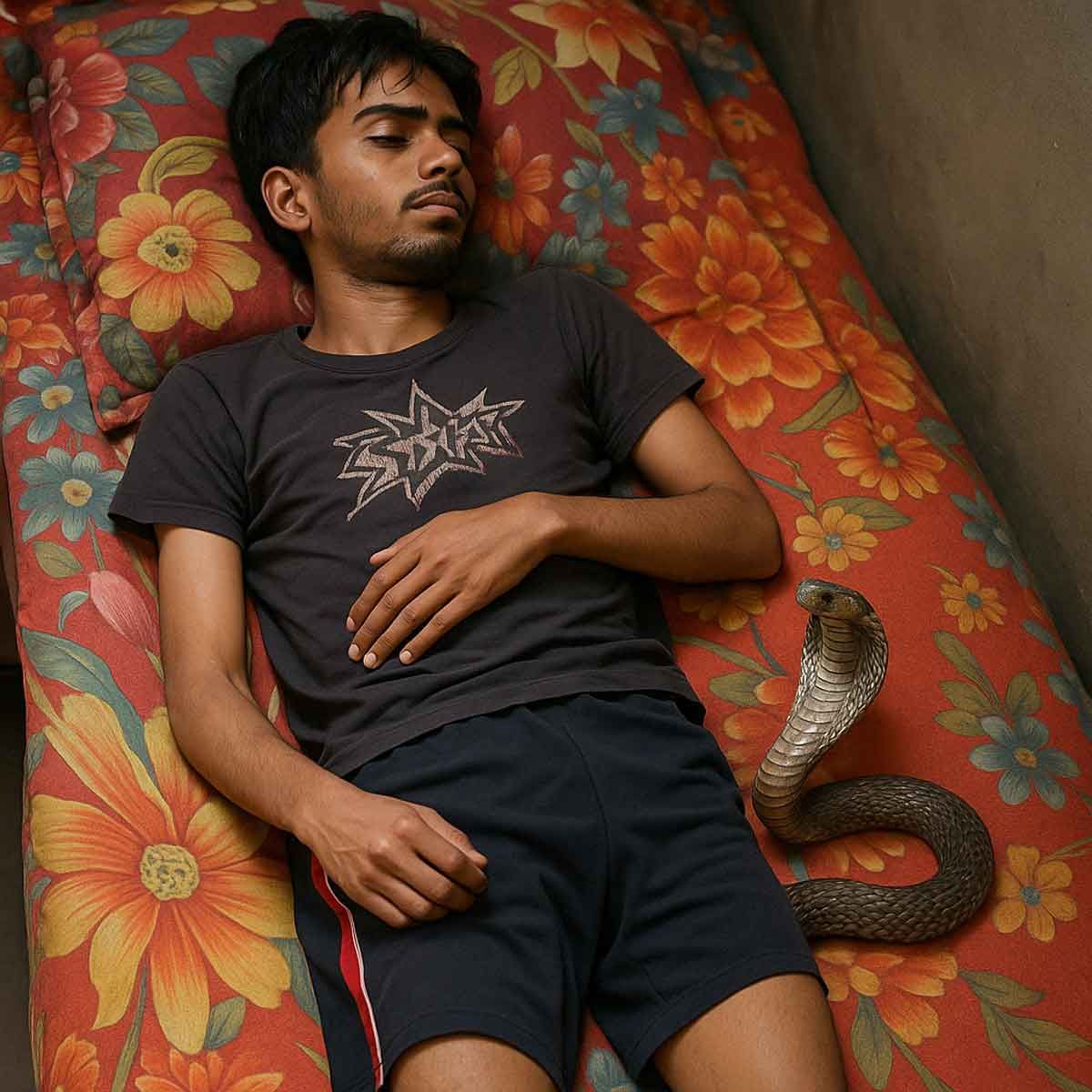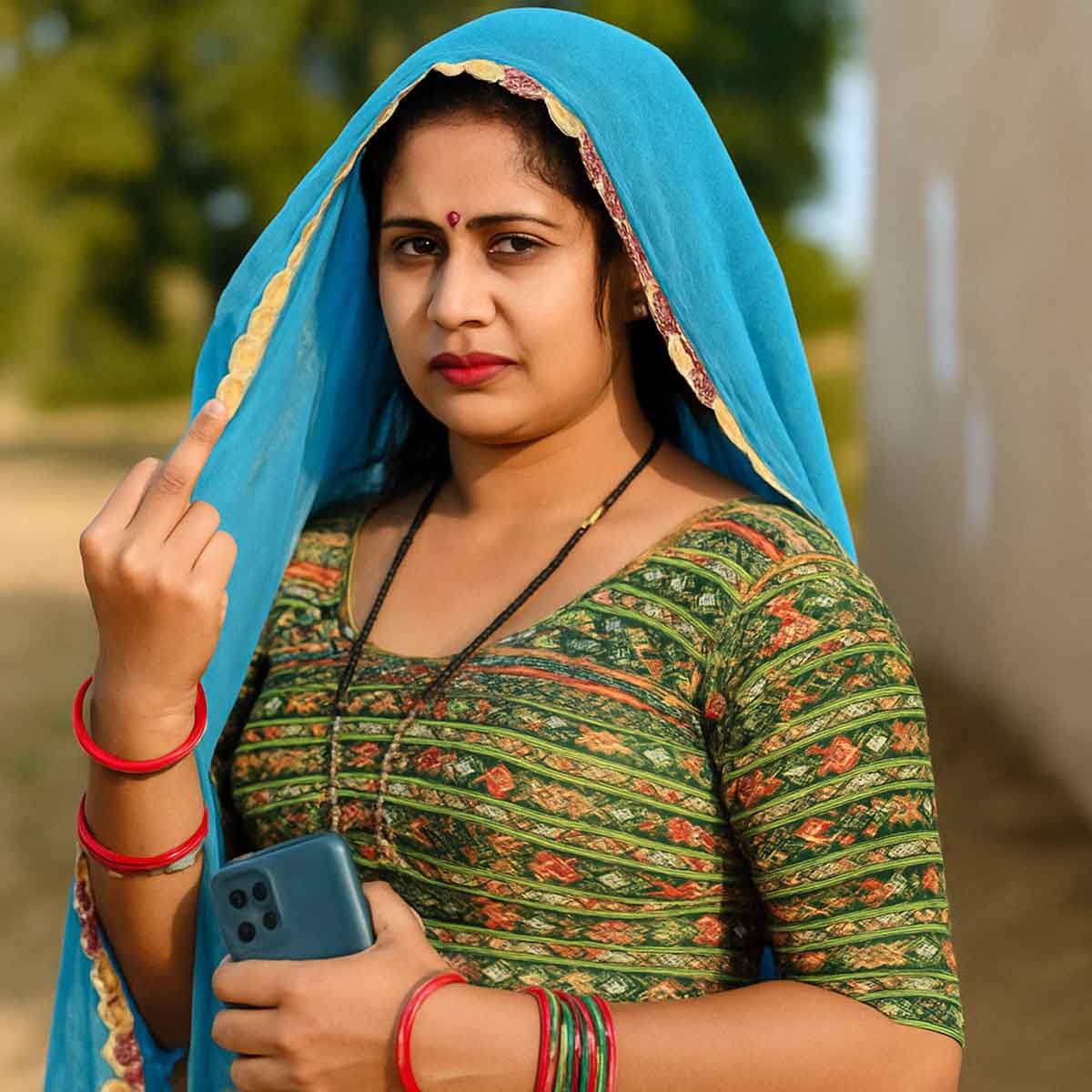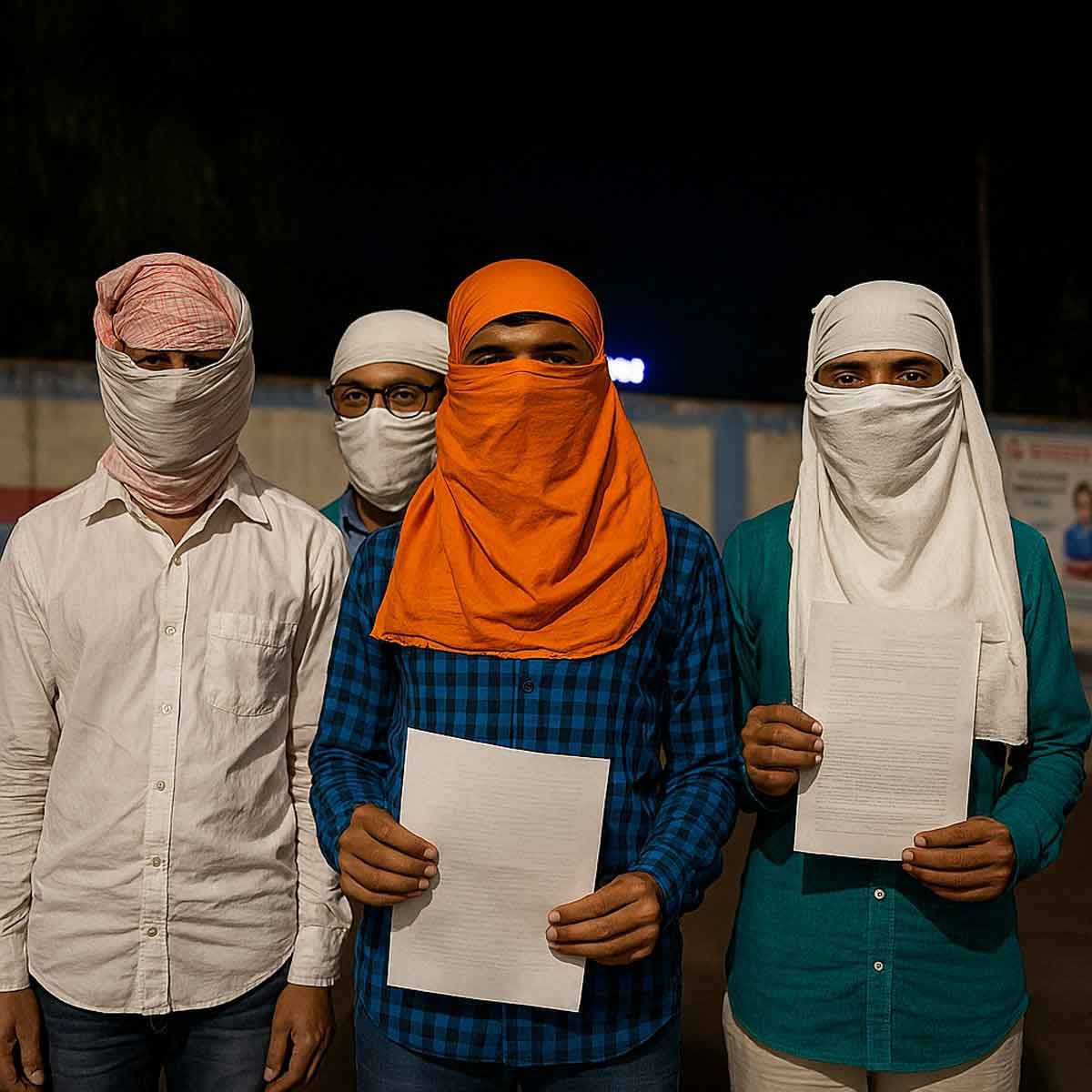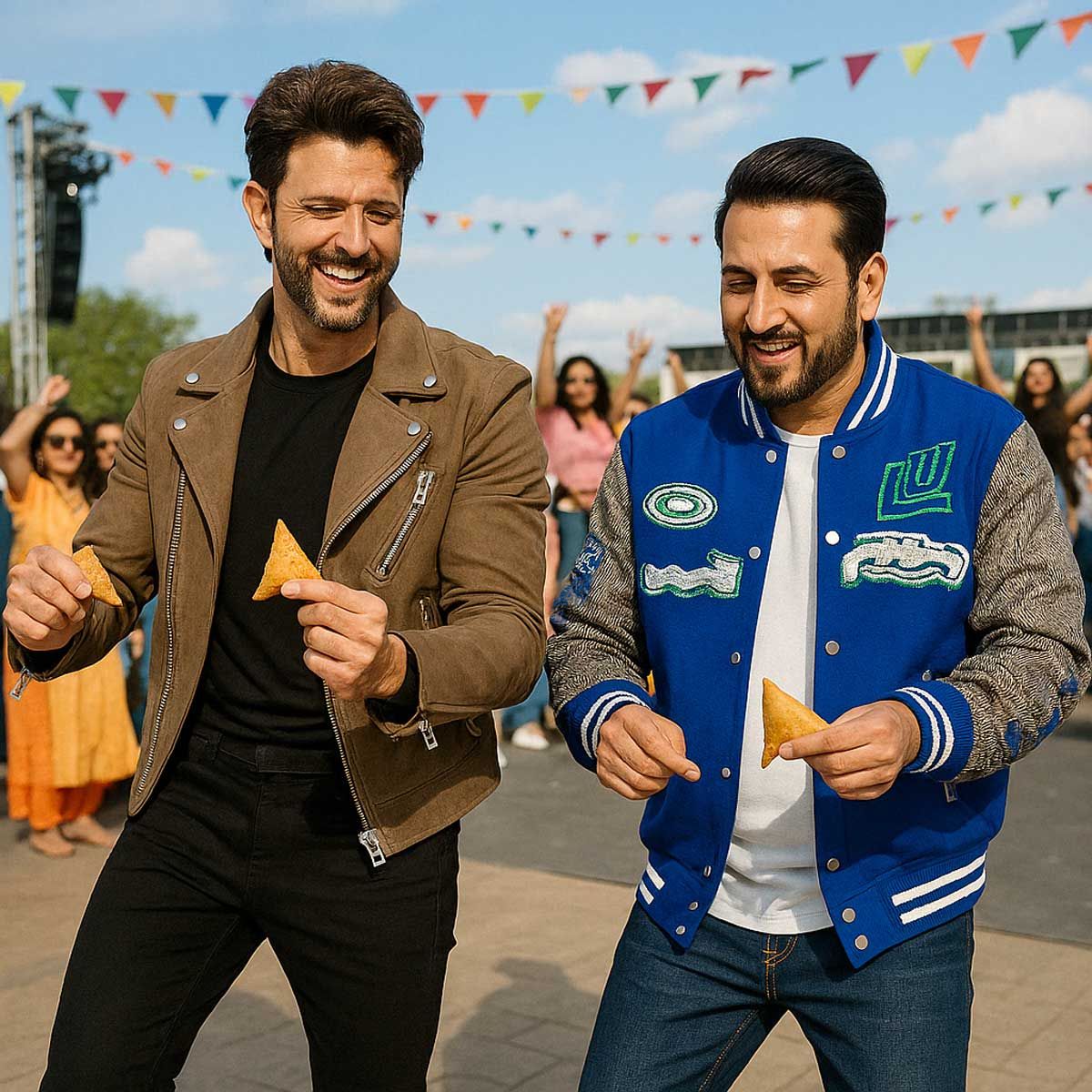More Coverage
Twitter Coverage
Satyaagrah
Written on
Satyaagrah
Written on
Satyaagrah
Written on
Satyaagrah
Written on
Satyaagrah
Written on
JOIN SATYAAGRAH SOCIAL MEDIA
"Through turbulence and peace, the valley stands tall": Lal Chowk, Srinagar's heart, charts a tale from political fervor to darkness and now, resurgence. Decades of change, it's a testament to Kashmir's spirit and the valley's stride towards peace
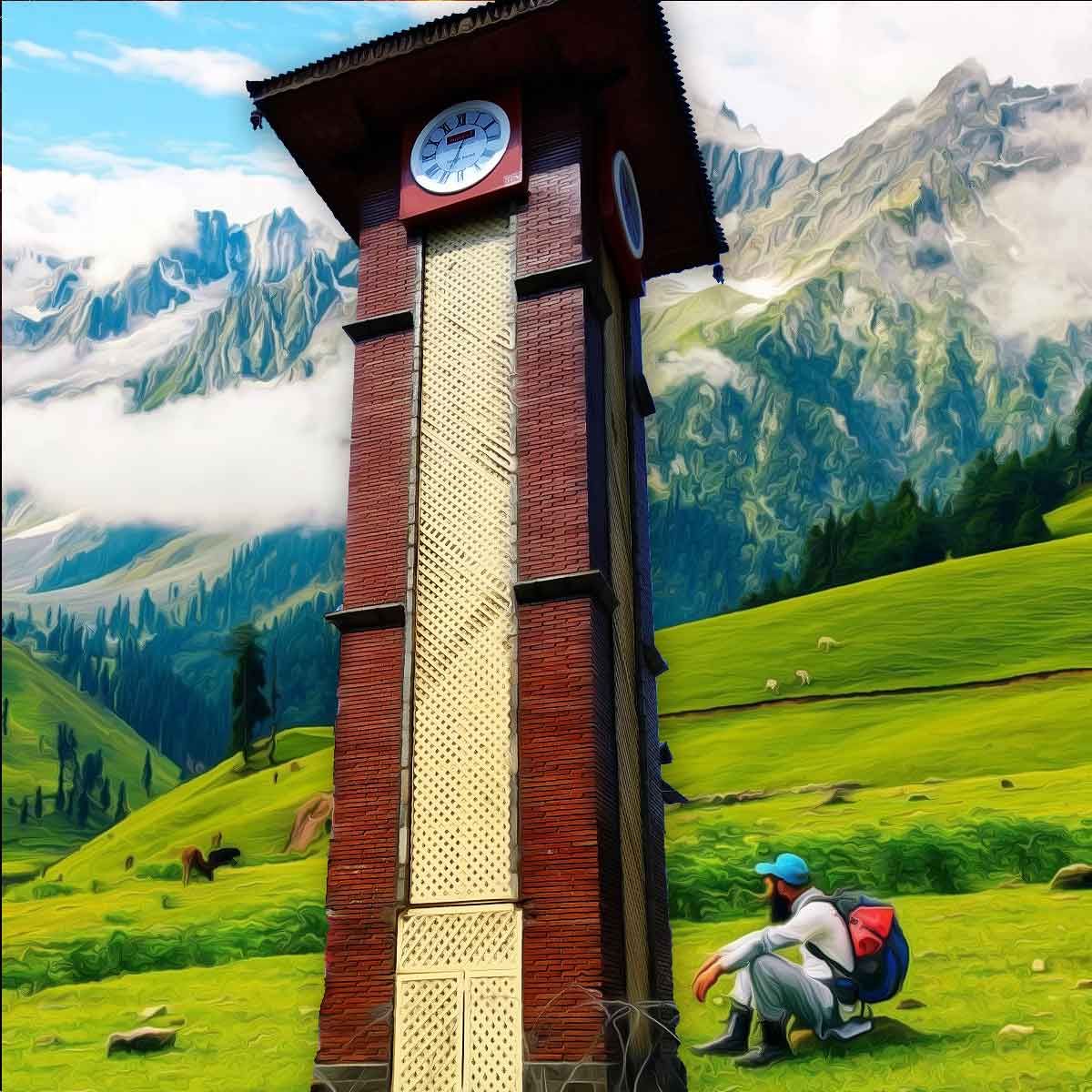
Lal Chowk, situated at the heart of Srinagar, isn't merely a bustling business hub. More significantly, this iconic location encapsulates the vibrant political spirit of Kashmir. Throughout the last century, a multitude of figures, each with distinct narratives and ideologies, have leveraged its symbolic value to stage their grand statements.
|
Picture this: on a joyous evening commemorating India’s Independence Day, the ambiance at Lal Chowk was nothing short of celebratory. The square teemed with exuberant Kashmiris, their spirits high. They danced jubilantly around a fountain, rejoiced beneath the newly reconstructed clock tower, and captured memories, snapping photos from every conceivable angle. Throughout the day, numerous individuals and groups reveled in the festivity, proudly waving the Indian national flag and capturing the moment in photographs and selfies.
Yet, the fountain couldn't quite hold the overwhelming excitement as it cracked under the weight of the celebrants. An enthusiastic individual even tried to extract the 'L' from ‘LALCHOWK’ as a personal keepsake. The surrounding edifices gleamed, bathed in a radiant glow - a stark departure from the somber aura that had enshrouded Lal Chowk not too long ago.
Roll back the years a bit, and you'd find Lal Chowk often dominated by grim sights: the stark coils of concertina wires, heavy paramilitary presence, and barricades – all to thwart the separatist marches to the Civil Lines. The UN's Military Observer Group's summer headquarters, looking over India and Pakistan, frequently played backdrop to such dramatic standoffs.
Yasin Malik, JKLF's chief residing closeby at Maisuma, was a regular at these demonstrations. Whenever a call for protest emerged, law enforcement swiftly shut down the area, transforming it into an eerie ghost town. Even main thoroughfares like Maulana Azad Road or Residency Road would be deserted, with not a soul in sight.
|
Fast forward to today, just half a decade post the disintegration of the Mufti-led government, and it's not just Lal Chowk but the entire Srinagar, along with nine rural district headquarters, that exudes peace. Gone are the tumultuous days marked by mob clashes, stone-pelting, separatist marches, and other violent incidents.
Indeed, post the monumental constitutional amendments of 2019, separatist violence has witnessed a dramatic decline. Daily life events, from funerals to academics, proceed without hitches. Notably, both trade and tourism sectors are on an upward trajectory. Traders from Srinagar and beyond, especially those in the Srinagar Civil Lines, are experiencing unprecedented prosperity, a first since 1988.
Reflecting on Lal Chowk's storied past, we see its pivotal role in Kashmir's history. It was here, back in 1932, a year after Bollywood's inaugural sound film ‘Alam Ara’ premiered, that Bhai Anant Singh Gauri established Kashmir’s maiden cinema, Palladium Talkies. This iconic theater screened 'Alam Ara' and, in 1947, became the base for Sheikh Mohammad Abdullah's initiatives.
The National Militia, a brigade of Kashmiri men and women, became the first locals to take up arms in support of the Indian Army. Their clarion call, "Hamla Aawar Khabardaar, Ham Kashmiri Hain Tayyar," became synonymous with their undeterred spirit. This location also witnessed then-Prime Minister Jawaharlal Nehru and Sheikh Abdullah address a vast congregation of their fellow Kashmiris.
The journey of Lal Chowk, from its cinematic beginnings to its political prominence, is a testament to Kashmir's undying spirit and its intertwining with India's national fabric.
|
Lal Chowk: An Epicenter of Kashmir's Political Evolution
Over the last half-century, Srinagar's Lal Chowk has been more than a mere witness to the political mosaic of Kashmir. It has, in fact, played a prominent role, shaping and reflecting the area's complex dynamics.
One of the most significant milestones in the chowk's history was in February when Sheikh Mohammad Abdullah received a rousing welcome from his ardent supporters. This was after he abandoned his 'Mahaz-e-Raishumari' and transitioned back into mainstream politics, becoming the Chief Minister. The support from then Prime Minister Indira Gandhi was a clear indication of shifting political alignments. In an impassioned speech, the Sheikh did not hold back his feelings towards Pakistan, criticizing its raids on Kashmir and its purported double standards.
The 1980s brought with it more transformations. A pivotal moment arrived when the old Clock Tower was resurrected by the Bajaj business group. Amidst tense circumstances, following a clash between taxi drivers and soldiers, Sheikh once again took to the stage to pacify heightened emotions. He played a vital role in bridging the growing divide between the civilians and the Indian Army.
However, the late 80s and early 90s were a turbulent period for Lal Chowk. Chief Minister Farooq Abdullah, during this time, took a strong stance against Pakistan, cautioning Kashmiris against the dangers of gun culture. The subsequent years saw the area marred by terror attacks, pro-azadi processions, and significant damage to several of its business centers and landmarks, including the historic Palladium.
Lal Chowk also played host to national leaders. In January 1992, amidst serious threats, BJP stalwarts Murli Manohar Joshi and Narendra Modi made a brave journey to Srinagar, hoisting the Indian national flag at Lal Chowk, reaffirming India's sovereignty over the territory.
|
The separatist leader Shabir Shah's call for unity among separatist factions also echoed in the Chowk, a call that eventually faded, much like Shah's own prominence in the political scene.
The years 2010 and onwards saw intensified upheaval. Incidents like the damaging of the Clock Tower, the raising of green Pakistani flags, and the tragic assassination of journalist Shujaat Bukhari, mere yards away from the chowk, painted a grim picture.
However, after the dismissal of the Mehbooba Mufti government in June 2018, the tumultuous tide began to change. The post-2019 phase saw a drastic reduction in separatist demonstrations, acts of terror, and other disturbances in Lal Chowk. The old Clock Tower, too, underwent a transformation in 2022, with a new majestic tower being erected as part of the Srinagar Smart City Mission.
The changing policies under Prime Minister Modi's leadership have undeniably influenced the current state of peace and normalcy in the region. However, the resilience and the indomitable spirit of the Kashmiri people, who have consistently distanced themselves from violence and extremism post-2018, have played an equally significant role.
Today, as Lal Chowk stands tall, it not only represents Kashmir's tumultuous past but also its promising future—a future where peace and prosperity reign supreme.
 Support Us
Support Us
Satyagraha was born from the heart of our land, with an undying aim to unveil the true essence of Bharat. It seeks to illuminate the hidden tales of our valiant freedom fighters and the rich chronicles that haven't yet sung their complete melody in the mainstream.
While platforms like NDTV and 'The Wire' effortlessly garner funds under the banner of safeguarding democracy, we at Satyagraha walk a different path. Our strength and resonance come from you. In this journey to weave a stronger Bharat, every little contribution amplifies our voice. Let's come together, contribute as you can, and champion the true spirit of our nation.
 |  |  |
| ICICI Bank of Satyaagrah | Razorpay Bank of Satyaagrah | PayPal Bank of Satyaagrah - For International Payments |
If all above doesn't work, then try the LINK below:
Please share the article on other platforms
DISCLAIMER: The author is solely responsible for the views expressed in this article. The author carries the responsibility for citing and/or licensing of images utilized within the text. The website also frequently uses non-commercial images for representational purposes only in line with the article. We are not responsible for the authenticity of such images. If some images have a copyright issue, we request the person/entity to contact us at satyaagrahindia@gmail.com and we will take the necessary actions to resolve the issue.
Related Articles
- "Turning the page from turmoil to tranquility": 4 years since the revocation of Article 370, Jammu & Kashmir emerges from the shadow of conflict, embracing peace, prosperity and an era of unprecedented development, this is the dawn of a new, united Bharat
- Since the abrogation of article 370, nearly 1700 Kashmiri Pandits are appointed by the Jammu and Kashmir government in various departments: Centre in Rajya Sabha
- "As dreams meet destiny, the world watches with bated breath": Srinagar beams under the global spotlight as the enchanting Kashmir readies for Miss World 2023, 'Mind-blowing' echoes Karolina Bielawska, encapsulating the valley's mesmerizing allure
- "Love over fear, always": From Kashmir's Kulgam, where AK-47s once echoed, 21-year-old Muneeb Amin Bhat shines bright, transitioning from conflict to Apple's Hall of Fame, Kulgam's symbol of evolution, highlighting the triumph of talent over turmoil
- "New dynamism in ties": In Jakarta, PM Modi calls for a new rules-based order in the post-Covid era, emphasizing the critical role of the ASEAN-India partnership in shaping the resurgence of Asia in the 21st century and fostering global growth
- "Create your own miracles; do what you think you cannot do": BRO's Engineering Marvels - Bridging Gaps, Transforming Lives in challenging terrain through crucial road networks, playing a vital role in national security, and fostering socio-economic growth
- “The Sea, once it casts its spell, holds one in its net of wonder forever”: A new era in cruise tourism and maritime trade across the nation started with the launch of India’s first international tourist cruise ship from Chennai to Sri Lanka
- Violent protests erupts in Srinagar after Yasin Malik was awarded life imprisonment by the court on terror funding charges, Islamists came to the streets and pelted stones at the security forces
- "Experience the majestic 'Yashobhoomi', an emblem of India's advancements in global conventions and expos, developed with a budget of Rs. 5400 crore, it encompasses 73,000 sqm, featuring 15 convention rooms with the capacity to host 11,000 delegates
- As of Tuesday, the tragic boat capsizing incident in the Jhelum River in Srinagar's Gandbal Nowgam area has resulted in 6 confirmed deaths and several others still missing, search and rescue operations being conducted by the State Disaster Response Force
- Highest annual Foreign Direct Investment inflow of USD 83.57 billion recorded by India in FY21-22, IT sector bags the largest share: proves that India is growing as a desirable destination for international investment
- Fahad Shah, editor of the prominent Srinagar-based news portal 'The Kashmir Walla' arrested for anti-national activities and sharing provocative content on the social media platform
- "Education is the development of power and ideal": India witnessed significant increase of 87% in MBBS seats, 105% in PG seats in last 8 years, 96% in GMC, 22 new AIIMS and projects for the upgradation of 75 Government medical colleges under PMSSY
- "The bridge between reality and a dream is work": Anji Khad Bridge - An Engineering Marvel took 11 months to ready India’s first cable stayed rail bridge with 96 cables set constructed in the Reasi district of the Union territory of Jammu and Kashmir
- Konark Chakra - Bharat’s Chariot of Progress at G20 Summit echoes our vibrant journey, a harmonious blend of rich heritage and dynamic innovation, steering the nation towards a bright, inclusive future on the global stage, fuelled by cooperation & harmony















